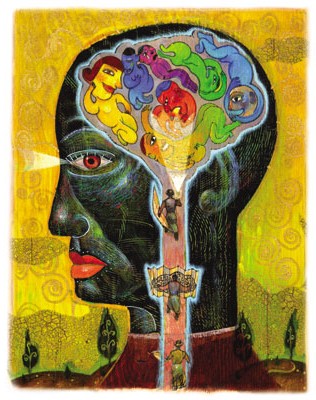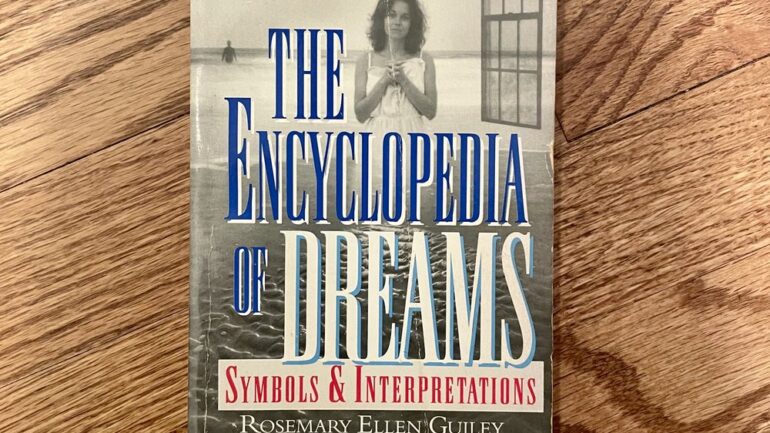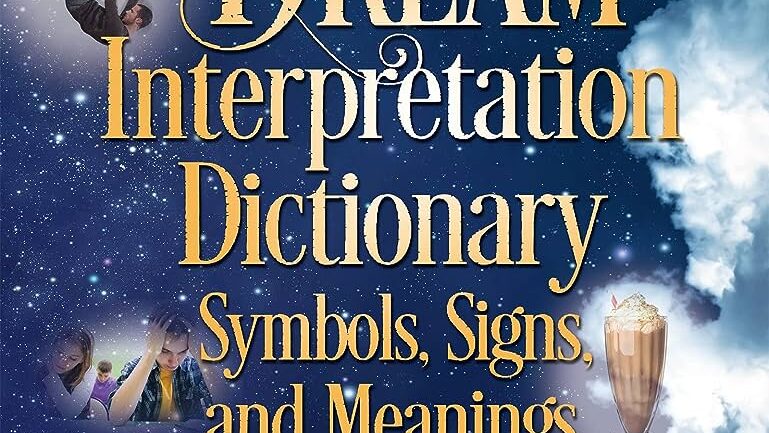Have you ever awakened from a dream, captivated by its vivid imagery and curious about its hidden significance? Dreams have intrigued humanity for centuries, serving as windows into our innermost thoughts and emotions. Delving deeper into the world of dreams, we uncover the fascinating realm of symbolic dreams – narratives woven with intricate symbols that hold keys to unlocking the mysteries of our subconscious mind.
The Mystique of Dreams and Their Symbolism
In every culture and era, dreams have held a special place in our collective imagination. Within this vast landscape, symbolic dreams stand out as enigmatic puzzles that beg to be solved. Unlike ordinary dreams, where the narrative can seem random and chaotic, symbolic dreams are carefully constructed by the unconscious mind, layering meaning upon meaning.
The Unconscious Mind: Gateway to Symbolism
Sigmund Freud and Carl Jung, two giants in the field of psychology, have greatly shaped our understanding of dream symbolism. Freud’s exploration of the unconscious unveiled how suppressed desires and unresolved conflicts manifest in our dreams. Jung, on the other hand, introduced the concept of archetypes – universal symbols that tap into the collective human experience. This intertwining of personal and universal symbolism enriches the tapestry of our dreams.
Types of Symbolism in Dreams

Symbolism in dreams comes in various forms. Personal symbols, unique to each individual, draw upon our life experiences and memories. Universal symbols, like the journey or the hero, transcend cultural boundaries and resonate with people across the globe. Cultural symbols, shaped by one’s background, infuse dreams with cultural nuances, while dream motifs, such as recurring places or objects, provide recurring themes that invite introspection.
Deciphering Symbolic Dreams: A Step-By-Step Guide
Embarking on the journey of interpreting symbolic dreams requires a systematic approach. Begin by keeping a dream journal, capturing the essence of each dream as soon as you wake up. Break down the dream’s elements, from the people to the emotions involved. Remember that emotions play a pivotal role in dream symbolism; they are the emotional undercurrents that guide the narrative. By making associations between the dream’s elements and your personal experiences, you can unravel the hidden meanings.
Common Symbolic Dreams and Their Interpretations
As we navigate the labyrinth of symbolic dreams, certain motifs emerge with distinct interpretations. Flying dreams often symbolize the desire for freedom and escape from limitations. Falling dreams, conversely, may signify feelings of insecurity or loss of control. Teeth-related dreams can reflect anxieties about communication and self-image, while chase dreams may mirror our approach to challenges. Water-related dreams plunge into the depths of emotions, and test-taking dreams lay bare our fears of unpreparedness or failure.
Cultural and Historical Perspectives on Dream Symbolism
The fascination with dream symbolism extends across cultures and history. Ancient civilizations, such as the Egyptians and Greeks, believed dreams carried prophetic messages. Native American cultures wove dream catchers to filter out negative dreams while capturing positive ones. Eastern philosophies like Hinduism, Buddhism, and Taoism integrated dreams into spiritual practices. Today, modern influences, like technology and globalization, impact the symbols that populate our dreams.
The Science Behind Symbolic Dreams
Beneath the veil of mystery, science offers insights into the origins of symbolic dreams. Neurologically, dreams originate from the intricate workings of the brain, with the rapid eye movement (REM) sleep phase linked to their vividness. Dreams serve as emotional regulators, aiding in processing complex emotions through symbolic narratives. As we dream, the mind integrates fragments of waking life, presenting them as symbols for us to decipher.
Ethical and Moral Considerations in Dream Interpretation
While exploring the depths of dream symbolism, ethical considerations must guide our journey. Respecting personal boundaries is paramount, as dreams can reveal vulnerable emotions. Striking a balance between interpreting symbolism and considering personal context prevents overinterpretation. Cultural sensitivity acknowledges that dream symbolism varies across societies. At times, seeking the guidance of dream experts ensures responsible and insightful interpretation.
The Controversy and Limitations of Symbolic Interpretation
Though dream symbolism offers profound insights, controversies persist. Skepticism from scientific quarters questions the validity of interpretations. The multiple layers of symbolism require careful navigation, acknowledging potential complexities. The debate between unconscious and conscious symbolism prompts introspection about intentionality. Recognizing that interpretations are subjective encourages embracing the diversity of meaning.
Conclusion: Unlocking the Portal to Self-Discovery
As we conclude our expedition through the realm of symbolic dreams, we stand at the crossroads of self-discovery. The enigmatic symbols within our dreams invite us to explore the uncharted territories of our psyche. By delving into dream interpretation, we embark on a transformative journey where we gain deeper insights into ourselves, our fears, desires, and aspirations. Just as dreams offer limitless possibilities, so too does the act of interpreting them.
Embrace the hidden meanings, for within your dreams lies a treasure trove of wisdom waiting to be unveiled.
Semantically Similar FAQs
- What are the hidden messages in dreams?
- How can I interpret my dreams’ symbolism accurately?
- Do cultural backgrounds influence dream symbolism?
- Are there universal symbols in dreams?
- Is there a scientific basis for dream analysis?
- Can dreams predict the future?
- Why do some symbols recur in different dreams?
- Should I be concerned if my dreams are always vivid and symbolic?
- How do emotions in dreams connect to symbolism?
- What ethical considerations should I keep in mind when discussing someon click here to investigate e else’s dreams?

Welcome to my website! My name is Patrick Petherick, and I am a professional Emotional Dream Coach. I am passionate about helping individuals understand the profound symbolism and meaning behind their dreams, and guiding them towards emotional healing and personal growth. Check it





